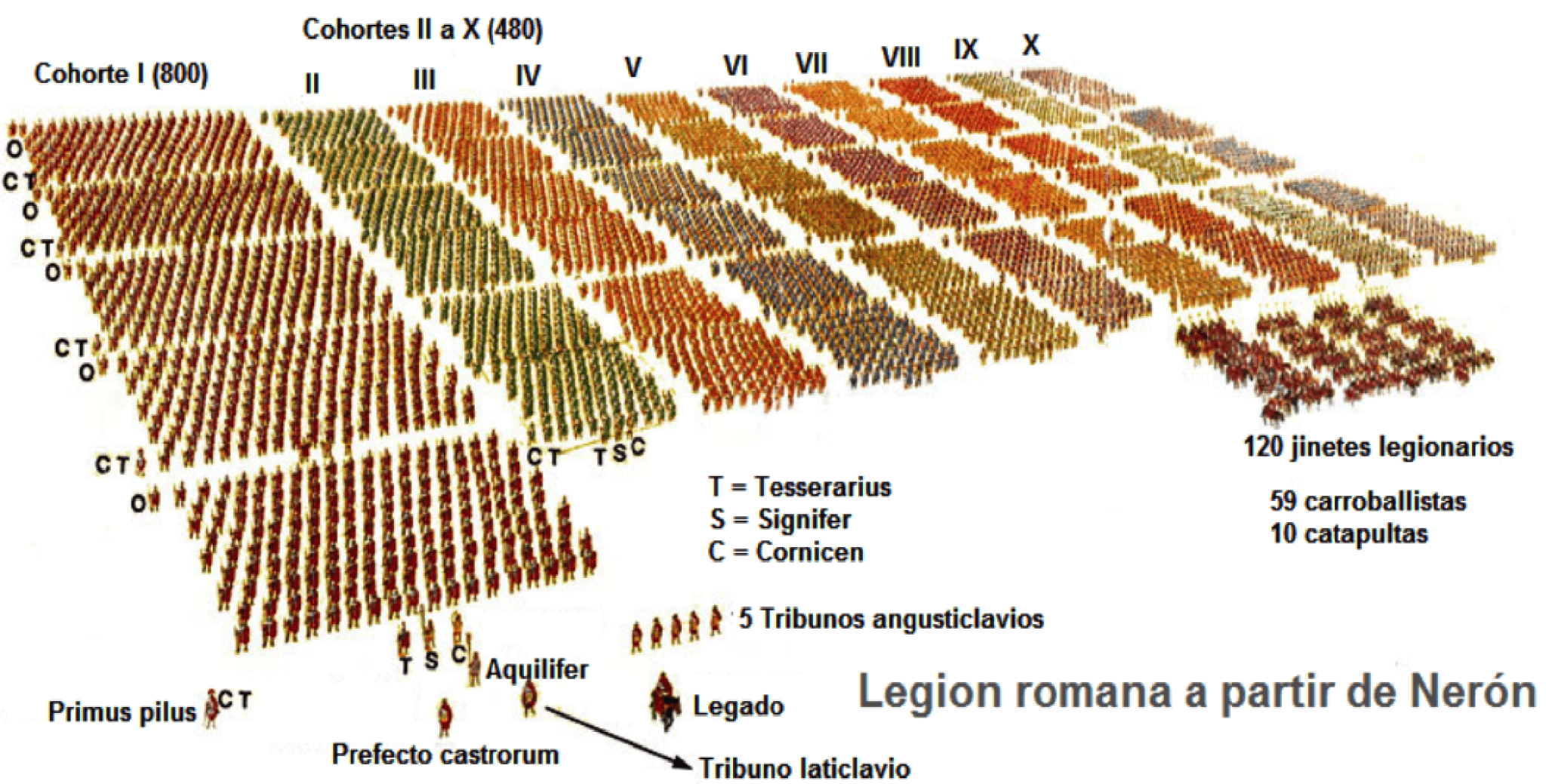The Cohort is the largest division of a Legion, with each consisting of 480 men, except for the 1st Cohort, which is larger. Each Cohort is made of six centuries of 80 men each, and each century is made of ten contubernia (tent-groups) of eight soldiers and two servants (whether those servants were slaves or free civilians/semicivilians is hotly debated).
Each century is led by a centurion, somewhere between an NCO and a commissioned officer. Centurions were typically picked (or elected) from the ranks for bravery and good conduct, and were expected to lead from the front. Each century would also have a tesserarius - a guard officer who organized the watch and patrols - a signifer - a standard bearer - and a cornicen - a horn blower.
Each century would typically have a scorpio, a small artillery piece ('carroballista' is specified here, but that refers to a mounted scorpio, which would not necessarily have been standard). Not sure that there's a source for 10 catapultas (large bolt-throwers) precisely, but a Legion could be assumed to have some number of heavier artillery of that kind. 120 legionary riders would be retained for guard, patrol, and scouting duties when there were no specialist auxiliary cavalry available.
The Aquilifer would be in charge of the Legion's eagle standard, and also in charge of keeping track of some of the soldiers' finances.
The Primus Pilus is the 'First File' or 'First Spear' centurion, the senior enlisted man in the Legion. He was in charge of the discipline of the Legion, and whatever else the Legate decided to trust him with - higher officers could be a bit ad-hoc in terms of responsibilities.
The Prefectus Castrorum - the camp prefect - was the officer in charge of the camp and its construction as a whole, and was typically an office given to an experienced soldier. He outranked the First File Centurion.
The five tribuni angusticlavii, the narrow-stripe tribunes, were political appointees who served as aides-de-camp for the Legate. The tribunes did not always take their responsibilities seriously, as they were generally young men climbing the political ladder rather than career soldiers, or aspiring career soldiers.
The Tribunus laticlavius, the broad-stripe tribune, was the second-in-command of the Legion. Also typically a young political appointee.
The Legate, appointed by the Senate and Emperor, was the general of the Legion, and held near-absolute power over the Legion. Generally, the Legate was someone trustworthy (relatively speaking) and of some military experience.












Goddamn, that sounds cool as fuck.